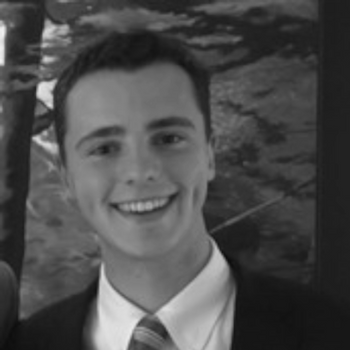Marquette forum calls university seal a 'microaggression'
At a recent forum, Marquette University faculty members declared that the school’s seal is a “microaggression” because it depicts a white explorer being guided by a Native American.
The Marquette University Intercultural Center, which is funded through a combination of tuition and student activity fees, hosted the March 23 event, titled “Men to Men: Responding to Microaggressions and Why They Matter.”
Guided by MU counselor Nicholas Jenkins, the forum began with a discussion of how microaggressions happen, the various types of microaggressions, and how there are targeted microaggressions by whites towards minorities.
[RELATED: Librarians warn ‘Christian fragility’ causes microaggressions]
At one point, Jenkins suggested that the university seal is a microaggression because one section of it depicts Marquette’s namesake, French explorer Fr. Jacques Marquette, standing in a boat being paddled by a Native American guide.
“Do you know what the Marquette seal looks like? Is that a microaggression?” he asked the audience, which responded with enthusiastic cries of “Yes!”
When Jenkins asked for theories as to why there is even a debate, one audience member speculated that there are many people with “privilege” who fear that “challenging those cultural norms will take away from their power.”
“It’s like talking to a wall...especially with the administration,” another attendee chimed in, blaming this on the fact that “want white people’s history to stay validized [sic] while not validizing [sic] marginalized communities.”
[RELATED: Columbia event discusses ‘obligation’ to ‘redistribute’ wealth]
“It is a fact that a white man took advantage of an economic disparity to have a Native American as his guide, so portraying that is value-neutral, arguably,” argued Theology professor Gary Klump. “But whether you want to see that continued is a discussion. The history happened. Portraying it can be positive or negative, depending on the values you attach.”
Dr. Jeff Roche, another MU counselor, agreed that the debate is worth having, saying, “I think that having discussions like this is the important bit” because individual perspectives depend on the “lens” through which each person views the issue.
“For instance, you watch Fox News about Milwaukee, and you think every black man in Milwaukee is a murderer or a robber,” Roche remarked.
[RELATED: Sheriff Clarke too ‘politically polarizing’ for UNH, speech cancelled]
“I often look at multiple ways in which we socialize in a system of white supremacy, which is the United States...This is a system that perpetuates white supremacy and that is ideological,” said psychology professor Dr. Simon Howard. “I’m not talking about clowns in Ku Klux Klan uniforms; I’m talking about the notion and belief that whiteness is superior and blackness is inferior. People don’t have to say this explicitly; it’s an ideology.
“Where does this stem from? I look at the Church,” he continued, noting that the primary image he associates with the Church is “a white Jesus,” and that this is true even of many people who don’t actively participate in religion.
Howard made clear that he did not mean his remarks to apply to all white people, but rather the “system” of white supremacy, saying that in order for such a system to exist, “oppressed people” must buy into it.
[RELATED: Protesters: Native American-made seal not native enough]
Although few of the participants at the forum deigned to offer a defense of the university seal, Marquette’s website explains that the seal is intended to symbolize important elements of the school’s heritage, including the coat of arms of the House of Loyola, who founded the Society of Jesus, and the motto Numen Flumenque, meaning “God and the [Mississippi] River.”
”The lower half depicts Father Jacques Marquette, the 17th-century Jesuit missionary, and explorer after whom the university is named who lived among various Great Lakes tribes for nine years while seeking to win their commitment to the Gospel,” the page elaborates. “The Miami guide represents the many Miami guides who accompanied him on his explorations of the western Great Lakes and the Mississippi River system.”
Campus Reform reached out to the university and each of the faculty members who contributed to the discussion, but has not received any responses.
Follow this author on Facebook: Zachary Thomas Petrizzo and Twitter: @Zach_Petrizzo

